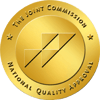Anxiety isn’t always obvious. Many people with high-functioning anxiety appear successful but silently struggle with constant worry, stress, and self-doubt. While they push themselves to excel, this relentless pressure can impact their mental and physical health
To cope, some turn to alcohol, using it to unwind, sleep, or quiet their thoughts—risking dependence over time. Recognizing these sneaky signs of high-functioning anxiety can help prevent unhealthy habits and lead to better mental health. Here are seven key signs to watch for.
Questions Answered:
- What is High-Functioning Anxiety?
"Having anxiety is a sign that something is important to you; caring about this is a demonstration of positive values. Consider, however, how much of anything is often a bad thing. Discovering the thoughts that create the worry that something might impact this important thing to you, empowers you to reframe, restructure, or reorganize your thoughts to create balance."
Jodi Stone MA, LPC, Clinical Director Soberman's Estate
What is High-Functioning Anxiety?
High-functioning anxiety is a condition where individuals appear successful and composed but internally struggle with excessive worry, negative thoughts, and physical symptoms like muscle tension or trouble falling asleep. Many high achievers experience this, but because they continue to meet daily responsibilities, their anxiety often goes unnoticed.
While not a formal diagnosis, high-functioning anxiety falls under anxiety disorders and can impact one’s quality of life over time. Understanding the signs of high-functioning anxiety in adults can help in seeking the right support and treatment.
Alcohol addiction recovery starts here.
Get the support you need today.
7 Signs of High-Functioning Anxiety
1. Overthinking and Constant Worry
One of the most common symptoms of high-functioning anxiety is excessive overthinking. People with this condition constantly replay past conversations, worry about future events, and analyze situations in extreme detail.
- They may second-guess decisions—even minor ones like what to wear or what to say in an email.
- Their thought patterns can be exhausting, leading to mental fatigue.
- Even when things are going well, they fear something will go wrong.
This cycle of negative thoughts makes it difficult to relax and enjoy the present moment.
2. Perfectionism and Fear of Failure
People with high-functioning anxiety often hold themselves to impossibly high standards. While striving for success can be positive, perfectionism becomes unhealthy when it leads to self-doubt and constant stress.
- They may avoid starting tasks out of fear of not doing them "perfectly."
- No matter how much they accomplish, they never feel "good enough."
- They often experience internally struggling feelings of guilt or shame when they make mistakes.
This tell-tale sign of high-functioning anxiety can lead to burnout, decreased quality of life, and emotional exhaustion.
3. Physical Symptoms: Muscle Tension, Fatigue, and Sleep Issues
Anxiety doesn’t just affect the mind—it takes a toll on the body. Many people with high-functioning anxiety experience chronic stress that triggers physical symptoms, including:
- Muscle tension, particularly in the neck, shoulders, and jaw.
- Headaches and digestive problems.
- Fatigue caused by an overactive nervous system.
- Difficulty falling asleep due to racing thoughts.
Since these symptoms develop gradually, people may not realize their body is in a constant state of stress.
4. People-Pleasing and Difficulty Saying No
A lesser-known but significant sign of high-functioning anxiety is the inability to say no. People with this condition often go out of their way to accommodate others, even at the expense of their own well-being.
- They may take on too many responsibilities at work or home.
- They fear disappointing others or being seen as unreliable.
- Saying "no" can cause overwhelming guilt and stress.
This habit can lead to burnout and an imbalanced life, further fueling anxiety.
5. Restlessness and Difficulty Relaxing
People with high-functioning anxiety feel uncomfortable when they aren’t being productive. Even during downtime, their minds race with negative thoughts about things they "should" be doing.
- They struggle to enjoy hobbies or leisure activities.
- They feel uneasy or guilty when taking a break.
- Their bodies remain in a state of mental and physical tension.
Because they constantly stay busy, they rarely allow themselves to recharge—leading to exhaustion over time.
6. Overcompensating with Work or Tasks
To cope with anxiety, many individuals throw themselves into work, fitness, or excessive organizing. While these behaviors might seem productive, they often serve as coping strategies to distract from deeper emotional distress.
- Workaholism is common among those with high-functioning anxiety.
- Constantly filling their schedule prevents them from confronting their thoughts.
- They may use external achievements to validate their self-worth.
This overcompensation often masks the underlying anxiety, making it harder to recognize and address.
7. Relying on Unhealthy Coping Mechanisms
Because anxiety can be overwhelming, some people turn to alcohol, caffeine, or avoidance behaviors to manage stress. While these methods might offer temporary relief, they can worsen mental health conditions in the long run.
- Excessive caffeine can heighten anxiety symptoms.
- Alcohol may be used to "unwind," increasing the risk of dependency.
- Avoidance behaviors (such as procrastination or withdrawing from social situations) can reinforce anxiety.
Recognizing these sneaky signs of high-functioning anxiety is essential for taking proactive steps toward healthier coping mechanisms.
Struggling with anxiety and addiction?
You don’t have to do this alone.
High-Functioning Anxiety and Alcohol Use Disorder
Many people with high-functioning anxiety don’t recognize when their drinking habits shift from "social" to "problematic." Because they maintain responsibilities, hold successful careers, and function in daily life, they often dismiss the warning signs of alcohol use disorder.
However, self-medicating with alcohol only worsens anxiety in the long run. Alcohol affects brain chemistry, leading to:
- Increased anxiety when the effects wear off.
- Disruptions in sleep, making anxiety symptoms worse.
- Higher risk of developing alcohol dependence.
Recognizing this connection is key to breaking the cycle and seeking healthier coping strategies.
Overcoming addiction is possible.
Let us guide you toward recovery.
High-Functioning Anxiety Treatment Options
If you or someone you love is struggling with high-functioning anxiety and using alcohol as a coping mechanism, professional help is available.
At Soberman’s Estate, we specialize in treating mental health conditions and substance use disorders. As the premier men’s-only adult drug and alcohol treatment facility in Arizona, we provide a private, supportive environment where men can regain control of their lives.
Our comprehensive treatment programs address both high-functioning anxiety and alcohol addiction, offering:
- Individual Therapy: Personalized sessions to uncover and address anxiety triggers.
- Cognitive-Behavioral Therapy (CBT): Techniques to reframe negative thought patterns.
- Holistic Approaches: Incorporating mindfulness, meditation, and yoga for stress relief.
- Medical Detox and Withdrawal Management: Ensuring safe and comfortable recovery.
- Group Therapy and Peer Support: Building healthy coping skills within a supportive community.
At Soberman's Estate, our clinical and medical leadership design a treatment plan that is customized to each client's goals and preferences. With a 10-bed maximum, our staff is able to fully dedicate their time, energy, and talent to each individual client and their healing needs.
Get the Help You Deserve at Soberman’s Estate
Struggling with high-functioning anxiety and using alcohol to cope can lead to a cycle that’s hard to break alone. At Soberman’s Estate, the premier men’s-only adult drug and alcohol treatment facility in Arizona, we offer personalized care, evidence-based therapies, and a private, supportive environment to help men overcome anxiety and addiction.
Take the first step toward lasting recovery—call us today at (480) 757-8403 or (602) 773-1112, or email us at info@sobermansestate.com.
Ready to break free from substance abuse?
We’re here to help every step of the way.





